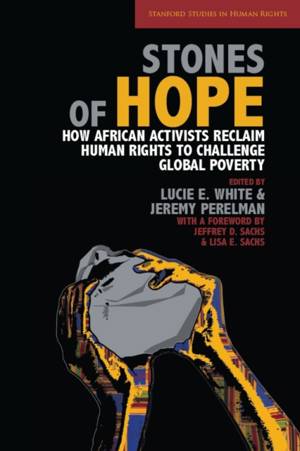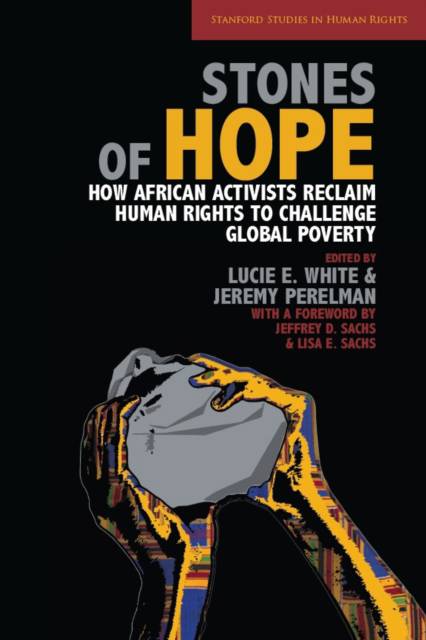
- Retrait gratuit dans votre magasin Club
- 7.000.000 titres dans notre catalogue
- Payer en toute sécurité
- Toujours un magasin près de chez vous
- Retrait gratuit dans votre magasin Club
- 7.000.0000 titres dans notre catalogue
- Payer en toute sécurité
- Toujours un magasin près de chez vous
Stones of Hope
How African Activists Reclaim Human Rights to Challenge Global Poverty
Description
Many human rights advocates agree that conventional advocacy tools-- reporting abuses to international tribunals or shaming the perpetrators of human rights violations--have proven ineffective. Increasingly, social justice advocates are looking to social and economic rights strategies as promising avenues for change. However, widespread skepticism remains as to how to make such rights real on the ground.
Stones of Hope engages with the work of remarkable African advocates who have broken out of the conventional boundaries of human rights practice to challenge radical poverty. Through a sequence of case studies and interpretive essays, it illustrates how human rights can be harnessed to generate democratic institutional innovations. Ultimately, this book brings the reader down from the heights of official human rights forums to the ground level of advocacy. It is a must-read for human rights advocates, development practitioners, students, educators, and all others interested in an equitable global society.
Spécifications
Parties prenantes
- Editeur:
Contenu
- Nombre de pages :
- 280
- Langue:
- Anglais
- Collection :
Caractéristiques
- EAN:
- 9780804769198
- Date de parution :
- 25-10-10
- Format:
- Livre relié
- Format numérique:
- Genaaid
- Dimensions :
- 157 mm x 233 mm
- Poids :
- 503 g

Les avis
Nous publions uniquement les avis qui respectent les conditions requises. Consultez nos conditions pour les avis.





